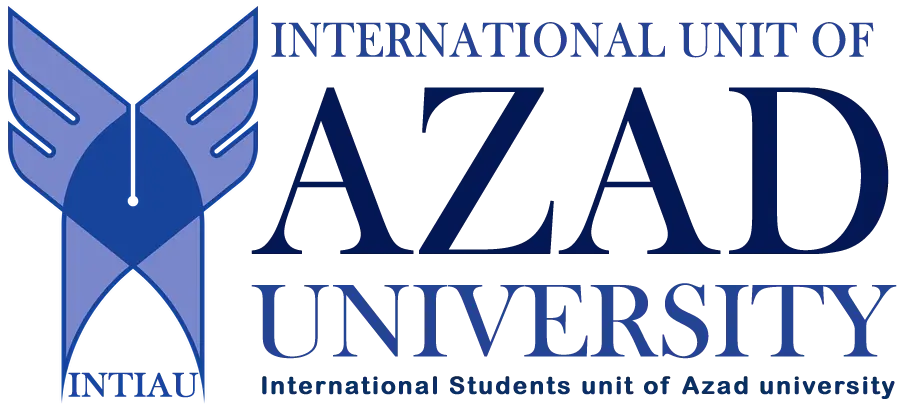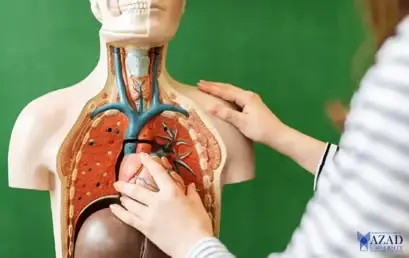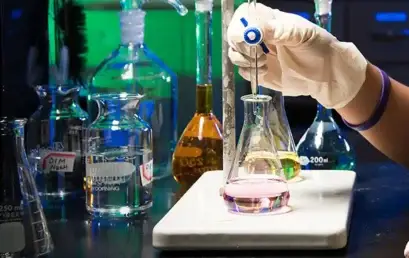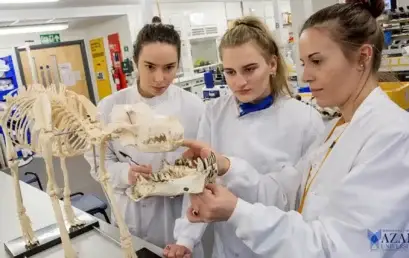Hochschulmanagement
Hochschulmanagement ist ein sich ständig weiterentwickelnder Bereich, der zielgerichtete Führung, effektive Kommunikation und strategische Entscheidungsfindung erfordert. Als Führungskräfte in diesem Bereich ist es unsere Verantwortung, die komplexen Herausforderungen zu meistern, die mit der Aufsicht von Hochschuleinrichtungen einhergehen.
Eine der größten Herausforderungen besteht darin, sicherzustellen, dass unsere Einrichtungen für alle Studierenden zugänglich und gleichberechtigt sind. Wir müssen daran arbeiten, systemische Barrieren abzubauen, die marginalisierten Bevölkerungsgruppen den Zugang zu höherer Bildung verwehren.
Ein weiterer wichtiger Schwerpunkt ist die Nachhaltigkeit. Als führendes Institut im Hochschulwesen haben wir die Verantwortung, der ökologischen Nachhaltigkeit Priorität einzuräumen und unseren Studierenden und Gemeinschaften nachhaltige Praktiken vorzuleben.
Schließlich erfordert effektives Hochschulmanagement eine offene und ehrliche Kommunikation. Wir müssen Transparenz zur Priorität machen und Kanäle für einen sinnvollen Dialog mit allen Beteiligten schaffen, darunter Studenten, Lehrkräfte, Mitarbeiter und Mitglieder der Gemeinschaft.
Letztlich hängt der Erfolg des Hochschulmanagements von unserer Fähigkeit ab, zielgerichtet zu führen, Gerechtigkeit und Nachhaltigkeit in den Vordergrund zu stellen und offene Kommunikationswege zu fördern. Auf diese Weise können wir sicherstellen, dass unsere Institutionen gut aufgestellt sind, um unseren Studierenden und Gemeinschaften auch in den kommenden Generationen zu dienen.
Gesundheitsförderung und -erziehung
Gesundheitsförderung und -erziehung sind zwei wesentliche Bestandteile, die Teil des täglichen Lebens eines jeden Menschen sein sollten. Diese Praktiken können Menschen dabei helfen, ihre Gesundheit zu bewahren und chronischen Erkrankungen vorzubeugen. Bei der Gesundheitsförderung steht die Entwicklung eines gesunden Lebensstils im Vordergrund, der dem körperlichen, emotionalen und geistigen Wohlbefinden Rechnung trägt, während die Erziehung darauf abzielt, den Menschen das Wissen und die Fähigkeiten zu vermitteln, die sie benötigen, um fundierte Entscheidungen über ihre Gesundheit zu treffen.
Zu guten Maßnahmen zur Gesundheitsförderung gehören regelmäßige Bewegung, gesunde Ernährung, der Verzicht auf Drogen und Alkohol, ausreichend Schlaf und die Pflege sozialer Kontakte. Aufklärung kann jedoch Hinweise geben, wie man frühe Warnsignale für gesundheitliche Probleme erkennt, wie man mit Stress umgeht und wie man geeignete medizinische Hilfe in Anspruch nimmt.
Indem Menschen Gesundheitsförderung und -erziehung priorisieren, können sie ihr Risiko für chronische Krankheiten senken, ihre Lebensqualität verbessern und ihre Lebenserwartung erhöhen. Daher ist es unerlässlich, dass Regierungen, Institutionen und medizinische Fachkräfte Gesundheitsförderung und -erziehung in ihrer Politik und Praxis priorisieren.
Anatomie- und Embryologiekurs
Da wir alle Produkte der Embryonalentwicklung sind, ist es faszinierend, etwas über Anatomie und Embryologie zu lernen. Die Anatomie ist die Lehre vom Aufbau eines Organismus, während die Embryologie die Lehre von der Entwicklung und Bildung eines Organismus von der Empfängnis bis zur Geburt ist.
Die Embryologie ist ein wichtiges Fachgebiet, da sie uns Erkenntnisse über die frühen Stadien des menschlichen Wachstums liefert. Sie gibt uns Einblicke in die Entstehung von Geweben und Organen und deren Interaktion miteinander. Diese Informationen helfen Medizinern, angeborene Anomalien und Entwicklungsstörungen besser zu verstehen. Auch die embryonale Stammzellenforschung ist ein wichtiger Studienbereich der Embryologie. Diese Forschung hat zu zahlreichen medizinischen Durchbrüchen geführt, beispielsweise zur Entwicklung von Behandlungen für Rückenmarksverletzungen, Diabetes und Herzkrankheiten.
Ebenso wichtig ist es, die Anatomie des menschlichen Körpers zu verstehen. Mediziner und Forscher studieren und lernen weiterhin die komplexen Strukturen des Körpers und ihre Funktionsweise kennen. Dieses Wissen wird zur Diagnose und Behandlung von Krankheiten und Verletzungen genutzt.
Zusammenfassend lässt sich sagen, dass Anatomie und Embryologie entscheidende Bereiche für das Verständnis unserer Existenz sind. Durch kontinuierliche Forschung und Fortschritte in diesen Bereichen können wir weiterhin Fortschritte in der Medizin erzielen und die Komplexität der menschlichen Entwicklung besser verstehen.
INTIAU Erdölökonomie
Die Erdölökonomie ist der Zweig der Wirtschaftswissenschaften, der sich mit dem Studium wirtschaftlicher Prinzipien, Theorien und Konzepte befasst, die auf die Öl- und Gasindustrie angewendet werden. Das Studium der Erdölökonomie konzentriert sich auf die Maximierung des Gewinnpotenzials von Öl- und Gasressourcen durch effiziente Explorations-, Produktions- und Vertriebsstrategien. Die Öl- und Gasindustrie spielt eine entscheidende Rolle in der globalen Wirtschaftsentwicklung, da sie die primäre Energiequelle für Transport, Fertigung und verschiedene industrielle Prozesse ist.
Die Erdölökonomie befasst sich mit der Analyse finanzieller und wirtschaftlicher Daten, um geeignete Investitionsentscheidungen in der Öl- und Gasindustrie zu treffen. Sie hilft auch, die Auswirkungen politischer Maßnahmen wie Steuern und Regulierung auf die Industrie zu verstehen. Eine effektive Bewirtschaftung der Erdölressourcen kann auch positive Auswirkungen auf die Umwelt haben, indem sie die Umweltauswirkungen der Öl- und Gasexploration und -produktion verringert.
Zusammenfassend lässt sich sagen, dass die Erdölökonomie ein entscheidender Aspekt der Öl- und Gasindustrie ist und Fachleute auf diesem Gebiet eine wesentliche Rolle bei der fundierten Entscheidungsfindung in Bezug auf Investitionen und Management spielen. Es handelt sich um ein dynamisches und sich ständig weiterentwickelndes Feld, das erheblich zum Wachstum und zur Entwicklung unserer globalen Wirtschaft beiträgt.
Französische Literatur INTIAU
French literature is renowned across the globe for its rich history, diversity, and artistic flair. From the epic tales of medieval literature to the existentialist philosophy of the 20th century, French literature has something for everyone.
One of the most famous works of French literature is Victor Hugo’s Les Misérables, a towering literary masterpiece that explores themes of poverty, justice, and redemption. This work has been adapted into numerous films, plays and musicals, cementing its place in popular culture.
Another classic is Gustave Flaubert’s Madame Bovary, which tells the story of a young woman who dreams of escaping her mundane existence but ultimately meets a tragic end. This work is considered a seminal work in the realist movement, which valued highly descriptive and passionate writing.
French literature also boasts a strong tradition of poetry, with renowned poets such as Arthur Rimbaud and Paul Verlaine creating works that explore human emotions with dazzling beauty and skill.
Overall, French literature is a vast and rich tapestry that has enthralled readers for centuries and will continue to do so for generations to come.
Gesundheitsökonomie INTIAU
Health economics is a growing field that is concerned with evaluating the effectiveness and efficiency of healthcare delivery systems and policies. It investigates how resources, such as money, time, and medical expertise, are allocated and utilized in the healthcare system.
In recent years, health economics has become more important than ever as healthcare policies and practices are being scrutinized for their effectiveness and sustainability. This has led to increased scrutiny of the costs associated with medical treatments, drugs, and procedures. Health economists are tasked with assessing the economic impact of different interventions and strategies and determining the most effective and efficient ways to deploy resources.
Furthermore, the COVID-19 pandemic has highlighted the importance of health economics in decision-making. Governments and policymakers around the world have turned to health economists for advice on how to allocate resources, such as medical supplies and personnel, in the fight against the pandemic.
Overall, health economics is a crucial field with far-reaching implications for patients, healthcare providers, and policymakers. It provides important insights that help to guide healthcare decision-making, allowing for effective and sustainable healthcare delivery.
Agrarökonomie am INTIAU
Agricultural economics is a discipline that focuses on the economic aspects of agriculture and related industries. At the National Technical University of Athens (INTIAU), this field of study takes an interdisciplinary approach that combines traditional economic theory with agricultural and environmental sciences.
Agricultural economics at INTIAU offers students the opportunity to explore the complexities of global food systems, including issues related to market efficiency, sustainability, and policy. With a combination of classroom learning, hands-on research, and practical experience, students gain the skills needed to become successful professionals in a variety of agricultural industries.
Through this program, students are exposed to cutting-edge research and innovative solutions to sustainable agriculture. They also have the opportunity to work alongside experienced faculty members who are leaders in their field.
If you’re interested in pursuing a career in agriculture or related industries, consider a degree in agricultural economics at INTIAU. This field is essential to ensuring the sustained growth and development of agriculture as a viable industry, and can provide exciting career opportunities in a variety of sectors.
Communication Science Course
Communication Science is a fascinating area of study that explores the ways in which humans interact and exchange information. It seeks to understand not just what people say, but also how they say it, in order to uncover the underlying messages and meanings that lie behind our words.
As we delve into the field of Communication Science, it quickly becomes clear just how crucial effective communication is to virtually every aspect of our lives. From personal relationships, to business interactions, to political and cultural issues, our ability to communicate clearly and persuasively plays a pivotal role in our success and happiness.
One of the key areas of focus in Communication Science is the study of nonverbal communication. This includes tone of voice, facial expressions, body language, and more. By studying these subtle cues, we can better understand how people truly feel and what they truly mean, even when their words might be saying something different.
Ultimately, the study of Communication Science offers a rich and rewarding path towards a deeper understanding of the ways in which we interact with one another. By gaining a deeper understanding of human communication patterns, we can become better communicators ourselves, and in doing so, unlock the full potential of our personal and professional lives.
INTIAU Applied Chemistry
Applying Chemistry to the Real World: A Closer Look at INTIAU Applied Chemistry
Chemistry is an incredibly important field that is integral to many areas of modern life. From pharmaceuticals to materials science, from environmental science to food technology, chemistry underpins a wide variety of industries. It is with this in mind that the INTIAU Applied Chemistry program was created – to help students harness the power of chemistry and apply it to the real world.
At INTIAU Applied Chemistry, students learn how to approach problems with a chemical mindset, using the latest research and techniques to develop new products, improve existing processes, and solve complex challenges. With a focus on hands-on learning and experiential education, students get the chance to work with cutting-edge equipment and collaborate with industry partners to develop solutions to real-world problems.
Whether you’re interested in pursuing a career in pharmaceuticals or materials science, environmental science or food technology, chemistry is a crucial component of many industries. The INTIAU Applied Chemistry program can help you harness the power of chemistry and apply it to the real world, bringing new insights and innovations to life. So why not explore the possibilities of what applied chemistry can achieve?
Azad University Animal Biology
Azad University’s Animal Biology department is an exciting place to study the intricate workings of the animal kingdom. This program offers students a broad range of courses that cover key topics such as animal physiology, genetics, behavior, and ecology. In each course, students learn about the latest research and trends in animal biology, which is vital for understanding the complex relationships between animals and their environment.
Through hands-on laboratory work, students have the opportunity to develop a deep understanding of the natural world around them. They analyze animal specimens and conduct experiments to study their behavior, physiology, and adaptation to their environment. Students also get a chance to participate in field trips and research projects, further enhancing their knowledge of animal biology.
A degree in animal biology opens up various career paths for students, including opportunities in wildlife management, veterinary medicine, and research. Graduates of this program go on to make meaningful contributions to our understanding of the natural world and its inhabitants.
Overall, the Animal Biology program at Azad University is an excellent choice for students passionate about animal welfare and conservation. The program offers world-class training and opportunities to make a difference in the lives of animals and the environment.










